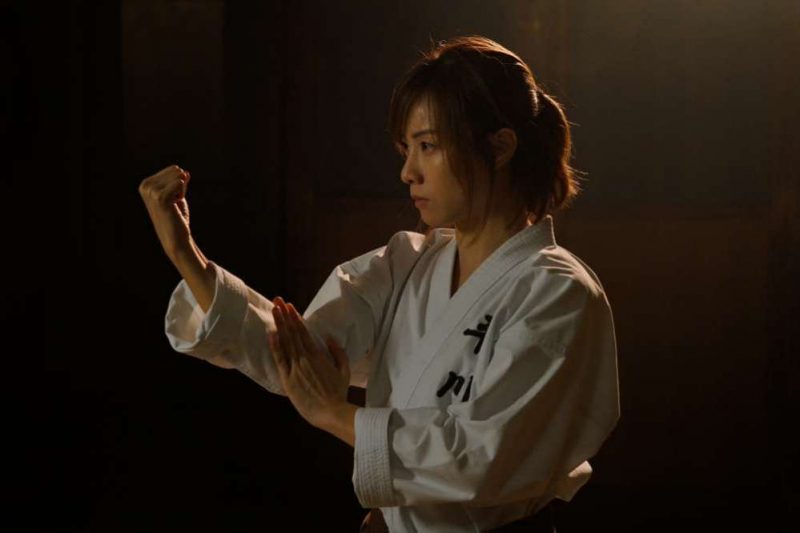Director – Chapman To – 2017 – Hong Kong – Cert. N/C 15+ – 97m
Film *****
Subtitle legibility *
A Hong Kong Chinese-Japanese must come to peace with her late, estranged karate-obsessed father – online in the UK as part of Hong Kong Focus 2021 from Tuesday, February 9th to Monday, February 15th
To get the subtitle issue out of the way first, the subs here are what subs often used to be forty years ago – white with no black edge around the lettering. So as soon as the lettering appears over a white area of the image, it’s rendered invisible and illegible. These days, that system is rarely used so it’s rarely a problem. But there are several scenes here when it’s an issue. Nothing that will fundamentally spoil the film, but it’s a pity that someone cut a corner and didn’t get this quite right. If it ever turns up on home video, I hope someone redoes the subs properly to make them legible. The translation seems fine, which makes the poor legibility far more irritating. Now then, the film…
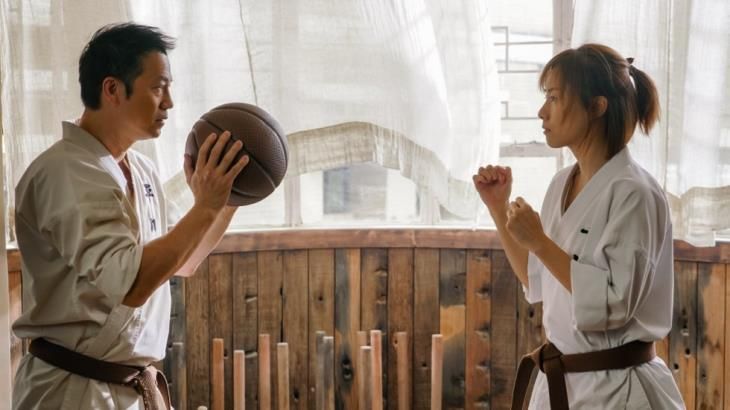
This follows the time-worn, martial arts movie template of a hero with something to prove so they train for a big competition fight in which they somehow find themselves. On that level it delivers, though those who come purely for the fights and action may find themselves disappointed. Not that the action sequences here aren’t top notch when their time comes, but they’re far from being the raison d’être for this film.
As accurately represented by the trailer, this is about Mari Hirakawa (Stephy Tang), the daughter of a Japanese company man Akira Hirakawa (seasoned Hong Kong martial arts bit player Yasuaki Kurata) who marries a Hong Kong Chinese woman (who we never see). He turns their modest home into a karate school, the dojo taking up much of the living space, In voice-over, Mari explains that although she was good at it and eventually attained black belt level, she hated being made to learn the martial art.
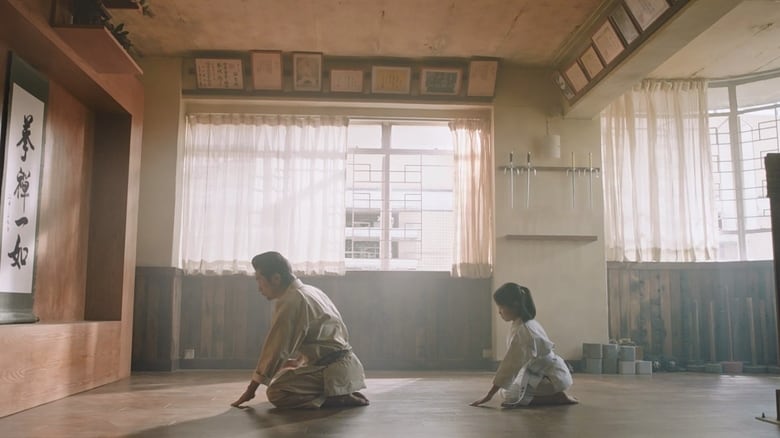
Things came to a head when without telling her, he entered his daughter in a contest which she lost – after which she never touched karate again. In the 1989 financial crisis, her dad refused to mortgage the dojo to help out her uncle’s ailing business after which her uncle committed suicide and her mum left. She and her dad fell out further when she falls for and starts sleeping with Calvin (Ryan Lau), a married man and a celebrity DJ, which her dad tells her is a bad idea. “But,” she says, “I need to make my own decisions.”
Although the school is no longer the thriving business it once was – some students have left and others are slow to pay their fees – her dad’s loyal, mute student Mute Dog (Stephen Au) is still very much part of the institution and it is he, not Mari (who’s at Calvin’s house at the time) who comes in and finds Akira collapsed unconscious on the floor. Akira never wakes up.
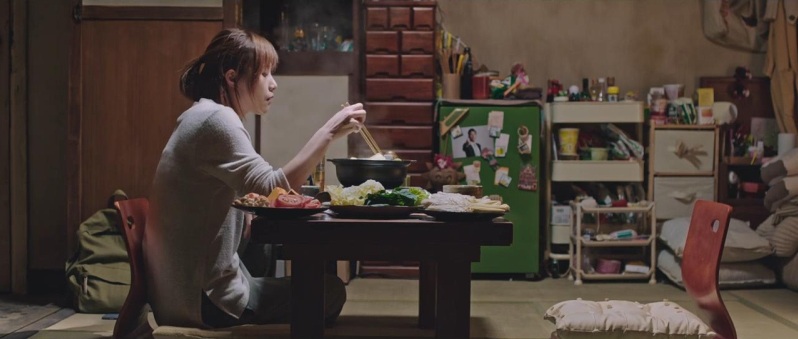
Mari confides in her best friend Peggy (Dada Chan from Vulgaria, Pang Ho-cheung, 2012) – who bizarrely not only refuses to have sex outside marriage with prospective partners but also happily supplies hand jobs to the clientele of the massage parlour where she works – that she plans to divide the home up into flats and reduce the dojo in size.
There’s just one problem: when the will is read out, she has been left 49% of the apartment with the other 51% going to Chan Kent (actor turned director Chapman To), a former student of her father’s who got thrown out for using karate for his own self-aggrandisement rather than to help people in genuine need. He makes good, however, when he turns on his paedophile boss and beats up fellow security guard colleagues abetting his boss’ abuse of a young girl. This gives rise to some explosive fight scenes.
Unfortunately, it also leads to the character spending three years in prison for assault, because apparently that’s a far more significant crime than rich and powerful people molesting kids. However, in attacking the paedophile and pulling her off the girl, he feels he was once again using karate to help others so feels more at peace with himself.
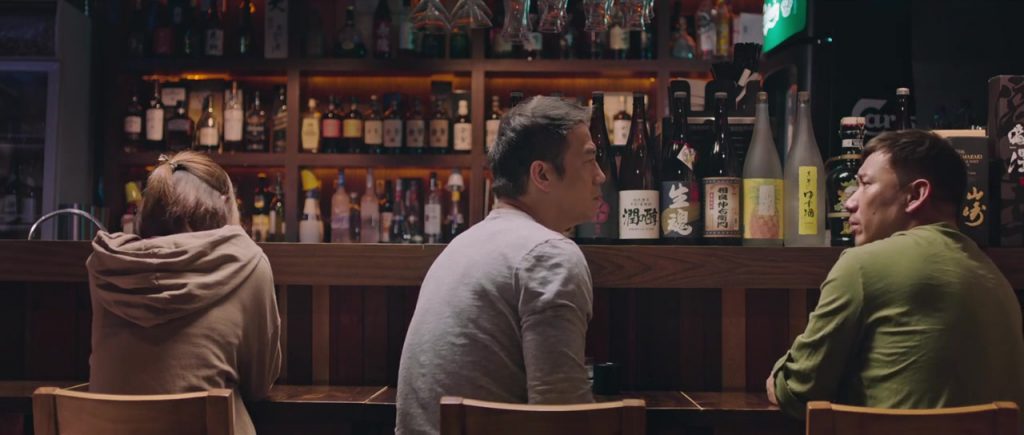
Which brings us to the film’s fight competition. Chan offers to give her his 51% if she can last i.e. remain upright for two rounds out of three with an opponent in the ring. This is not some bid for him to gain the premises – that would be logical but there’s no mention of her losing her 49% if she loses the fight – but more in line with his “karate is for helping others” philosophy. He and Mute Dog train the girl who hasn’t done karate for years; she does her best to learn. Then she has to confront a fearsome woman opponent in the ring…
The script by To himself and Erica Lee really gets underneath the skin of the central character. The ramen noodle bar frequented separately and ultimately together by Mute Dog, Mari, Peggy and, later, Chan provides many memorable moments. A terrific opening involves Mute Dog getting beaten up in the ring by an opponent and the same character gets an odd moment other later when he discovers the collapsed Akira but is unable to utter words to explain it either on the phone to 999 or to a man on the street who offers him unhelpful platitudes about silence.
It’s focused mostly on Mari though and her increasingly strained relationship with her father, in life and, as is the way of these things, after he’s died. The karate, fight scenes, her affair with Calvin and everything else in the film is subservient to that relationship. That’s not really what you expect from what looks from the outside like a typical martial arts movie – but it arguably makes for much more compelling viewing.
The Empty Hands plays online in the UK as part of Hong Kong Focus 2021 from Tuesday, February 9th to Monday, February 15th.
Trailer:
